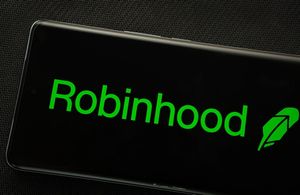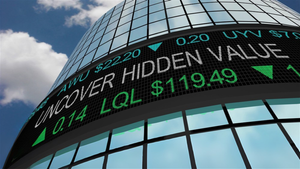Find out what IRA eligible silver is through WireDaily.com's latest guide.
PHOENIX, AZ / ACCESS Newswire / April 29, 2025 / Investing in silver can be a smart way to hedge against inflation and diversify your retirement savings. But not just any silver qualifies for a self-directed IRA. To get the tax advantages of a Silver IRA, your investment must meet strict IRS rules. This article explains exactly what IRA-eligible silver is, which products qualify, and how to invest safely.
Avoid Gold IRA Investing Mistakes with This Free Guide From Augusta Precious Metals
What Does "IRA-Eligible Silver" Mean?
IRA-eligible silver refers to silver bullion products that meet specific IRS criteria for inclusion in a self-directed Individual Retirement Account (IRA). These criteria are designed to ensure that only high-quality, investment-grade silver is held in retirement accounts that benefit from tax advantages.
To be eligible, silver must meet the following key requirements:
Purity: It must be at least 99.9% pure (.999 fineness). This level of purity ensures that the silver has a predictable and standardized value, making it easier to price and trade in the global market.
Form: The silver must come in the form of approved bullion bars or government-minted coins. These formats are standardized for weight and content, reducing the risk of fraud or pricing discrepancies.
Source: Eligible silver must be produced by an accredited mint or refinery, such as those recognized by the London Bullion Market Association (LBMA), COMEX, or government mints like the U.S. Mint or Royal Canadian Mint.
Silver products that don't meet these standards-such as jewelry, collectible coins, or privately minted rounds without proper certification-are not allowed in an IRA. Including such items can lead to IRS disqualification of the asset, triggering taxable distributions and possible penalties.
In short, IRA-eligible silver must be verifiable, liquid, and held to strict quality standards to qualify for tax-advantaged retirement investing. Investors should always confirm eligibility before making a purchase.
Schedule a Web Conference with a Gold IRA Expert From Augusta Precious Metals Today
Why Purity and Form Matter
When it comes to silver in a self-directed IRA, purity and form aren't optional-they're essential. The IRS imposes these requirements to ensure that your retirement assets are genuine, standardized, and easily marketable.
High-purity silver, defined as at least .999 fine, is considered investment-grade. This level of purity ensures consistent quality across all IRA-eligible silver products and makes it easier to assess the metal's true market value. Lower-purity silver-often found in jewelry or older coins-may contain significant amounts of alloy, reducing both its melt value and appeal to buyers.
Form matters just as much as purity. Only specific bullion coins and bars are allowed-those issued by government mints or accredited refiners. These products are:
Easier to authenticate
Widely recognized in global markets
Standardized for weight and purity
This level of consistency reduces risk, enhances liquidity, and protects investors from buying misrepresented or counterfeit metals.
If you accidentally buy silver that doesn't meet these requirements, the IRS can treat that asset as a distribution. This means:
You'll owe immediate income tax on the value of the silver
If you're under age 59½, you'll also face a 10% early withdrawal penalty
In short, meeting purity and form standards isn't just about compliance-it's about safeguarding your retirement.
Learn How to Avoid Gold IRA Gimmicks and Mistakes with This Free Guide From Augusta Precious Metals
Types of IRA-Eligible Silver
When investing in silver through a self-directed IRA, it's critical to select products that meet IRS eligibility standards for purity, form, and production. Fortunately, several well-known coins and bars are widely recognized as compliant, making it easier for investors to stay on the right side of the rules.
Approved Coins
The IRS allows certain sovereign silver coins that are at least 99.9% pure and produced by official government mints. Popular options include:
American Silver Eagle (1 oz) - 99.9% pure, backed by the U.S. government, and one of the most trusted bullion coins in the world.
Canadian Silver Maple Leaf (1 oz) - 99.99% pure, known for its superior purity and advanced anti-counterfeit technology.
Australian Silver Kangaroo (1 oz) - 99.99% pure, issued by the Perth Mint with a global reputation for quality.
Austrian Silver Philharmonic (1 oz) - 99.9% pure, Europe's most popular silver coin, recognized for its detailed design and liquidity.
Approved Bars
Silver bars must be:
.999 pure or better
Manufactured by an IRS-recognized refiner (LBMA, COMEX, NYMEX, or ISO 9001-certified)
Clearly stamped with weight, purity, and mint origin
Common sizes range from 1 oz to 100 oz, with 1-kilogram bars also popular among long-term investors seeking efficiency in storage and value.
Choosing these products ensures your silver remains eligible and secure within your IRA.
What Silver Is NOT IRA-Eligible?
Not all silver qualifies for inclusion in a self-directed IRA, even if it appears valuable. The IRS enforces strict guidelines to ensure that only standardized, investment-grade silver is allowed in tax-advantaged retirement accounts. Including the wrong type of silver can trigger taxes, penalties, or even disqualify your entire IRA.
Here's what to avoid:
Silver Jewelry - No matter how pure or expensive, silver jewelry is considered a personal possession and not an investment-grade asset. It lacks standardization and proper certification.
Collectible or Numismatic Coins - Coins like Morgan dollars or Peace dollars are valued for rarity, age, or condition-not metal content. Their value is subjective and fluctuates with collector demand, which disqualifies them from IRA eligibility.
Commemorative or Limited-Edition Coins - Often sold by private mints, these coins may look attractive but typically lack recognized melt value, uniformity, and liquidity.
Private Mint Rounds - Unless produced by an IRS-approved mint or refinery with proper purity certification, most silver rounds from private mints do not qualify.
These products may have aesthetic or collectible value, but they do not meet the IRS's investment standards. Including them in a Silver IRA can lead to penalties, taxes, and the loss of your account's tax-deferred or tax-free status. Always verify eligibility before purchasing.
Avoid Gold IRA Investing Mistakes with This Free Guide From Augusta Precious Metals
How to Buy IRA-Eligible Silver Safely
Investing in silver through a self-directed IRA involves more regulation than buying silver outright-but the process is straightforward if you follow these four key steps:
1. Open a Self-Directed IRA (SDIRA)
Traditional brokerages typically don't offer precious metals in their IRAs, so you'll need to open a self-directed IRA through a specialized custodian. This type of account allows you to hold alternative assets, including silver, and is governed by the same contribution limits and tax rules as conventional IRAs. Choose a custodian with experience in handling precious metals to ensure full compliance with IRS guidelines.
2. Fund the Account
Once your SDIRA is set up, you can fund it in one of three ways:
Rollover funds from a 401(k) or other retirement account
Transfer from an existing IRA
Direct contributions (up to the annual IRS limit)
Your custodian will help ensure the transfer is tax-free and penalty-free.
3. Buy Through an Approved Dealer
You must purchase your silver through a reputable dealer that works with your custodian. They will guide you to IRA-eligible silver products and ensure that all documentation, invoices, and shipping are handled correctly.
4. Store It in an IRS-Approved Depository
All silver purchased for your IRA must be stored in a third-party, IRS-approved depository-not at home. These depositories are fully insured, secure, and compliant. Home storage can lead to disqualification of your IRA and trigger taxes and penalties.
Following these steps ensures your investment is safe, compliant, and protected long-term.
Get This Free Gold IRA Guide from WireDaily's Top-Ranked Gold IRA Company
Why IRA-Eligible Silver Matters
Silver has earned its reputation as a reliable hedge against inflation and economic instability. Unlike paper assets, silver is a tangible commodity with intrinsic value that can hold its ground-even when markets falter or currencies weaken. This makes it a powerful tool for long-term investors seeking to protect their purchasing power.
Adding silver to your retirement portfolio can help reduce overall risk by diversifying beyond traditional investments like stocks and bonds. Historically, silver has shown a low correlation with equities, meaning it may rise when other assets fall. That kind of balance is essential for managing volatility, especially as you get closer to retirement.
But simply buying silver isn't enough. To take advantage of tax-deferred or tax-free growth within an IRA, the silver must be IRA-eligible. That means:
Meeting strict purity standards (99.9% or higher)
Being produced by an approved mint or refiner
Purchased through a qualified dealer
Stored in an IRS-approved depository
Failing to follow these rules could disqualify your IRA, leading to unexpected taxes and penalties. When done right, investing in IRA-eligible silver gives you the dual advantage of precious metals security and tax-advantaged growth, making it a smart move for cautious, long-term retirement planning.
FAQs About IRA-Eligible Silver
Can I put silver coins I already own into an IRA?
No. All silver must be purchased through your IRA custodian using retirement funds. You can't transfer in metals you already own.
Are silver rounds IRA-eligible?
Only if they're produced by an approved mint and meet .999 purity. Most privately minted rounds are not eligible.
How is silver in an IRA taxed?
Silver IRAs follow the same tax rules as other IRAs. Traditional IRAs grow tax-deferred; Roth IRAs offer tax-free withdrawals in retirement.
Can I take physical delivery of my silver?
Yes, but only as a distribution. Once you retire, you can choose to receive physical silver instead of cash. That distribution is subject to normal IRA tax rules.
Final Thought
IRA-eligible silver gives investors a powerful tool to diversify, protect, and grow retirement savings with physical assets. But the IRS doesn't allow just any silver-you must stick to high-purity, approved products, and follow strict storage and purchase guidelines. Done right, a Silver IRA can bring peace of mind and real-world value to your long-term financial plan.
About WireDaily.com
WireDaily provides finance and tech news, online gaming insights, and expert-curated rankings to help readers make smarter digital decisions.
Contact:
Greg Doucette
inquiries@wiredaily.com
SOURCE: WireDaily
View the original press release on ACCESS Newswire





